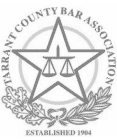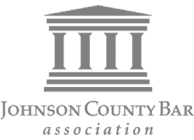What Are the Most Common Reasons for Probate Litigation?
 After the death of a loved one, families often have to deal with far more than just their grief. The deceased person's estate must go through probate, which is the legal process of settling their affairs. This includes distributing their assets and property to their heirs and paying any debts and taxes owed. In many cases, probate can be a straightforward process. However, there are some cases where probate can become contentious, particularly if there are disputes about the deceased person's will. In these situations, probate litigation may be necessary. Estate executors, family members, or others who become involved in probate litigation will need to seek out an experienced attorney who can help navigate the legal process and protect their interests.
After the death of a loved one, families often have to deal with far more than just their grief. The deceased person's estate must go through probate, which is the legal process of settling their affairs. This includes distributing their assets and property to their heirs and paying any debts and taxes owed. In many cases, probate can be a straightforward process. However, there are some cases where probate can become contentious, particularly if there are disputes about the deceased person's will. In these situations, probate litigation may be necessary. Estate executors, family members, or others who become involved in probate litigation will need to seek out an experienced attorney who can help navigate the legal process and protect their interests.
Issues That May Be Resolved Through Probate Litigation
Multiple types of disputes may arise during the probate process, and probate litigation may be used to resolve issues related to:
-
Validity of a will - In some cases, family members may be surprised to learn that the will filed by the executor of the estate was different than what they expected. This may cause them to believe that someone has acted wrongfully and attempted to subvert their loved one's wishes, such as by convincing them to change their will or even submitting a falsified document in court. The validity of a will may be challenged during the probate process, and these challenges must usually be based on one of the following grounds:
-
Lack of testamentary capacity - Family members may believe that their loved one did not fully understand what they were signing when they created or updated their will.
-
Undue influence - Family members may believe that their loved one was forced to sign a will against their wishes or that they were coerced or pressured to make changes that did not reflect their actual desires.
-
Improper execution - A will may be challenged on the basis that the proper requirements were not met when it was signed, such as by failing to have two witnesses present at the signing.
-
Fraud or forgery - A person may claim that the will submitted had been falsified, such as by changing its contents after it had been signed or by forging the testator's signature.
-
Disinheritance of family members - There are some situations where a person may choose not to leave any assets to certain loved ones. However, if an heir such as a person's spouse or child has the legal right to inherit assets, simply leaving them out of the will does not take away this right. An heir must be explicitly disinherited, and if a will failed to do so, a family member may claim that they should still be able to inherit property.
-
Breach of fiduciary duty - The executor named in a person's will has the responsibility to manage the estate's assets and distribute property to heirs according to the instructions the testator left behind. If family members or other heirs believe that financial losses have occurred because the executor has failed to prudently manage assets, or if the executor did not follow the will's instructions for how assets should be distributed, they may take action to hold the executor liable for this breach.
Contact Our Hill County Probate Litigation Lawyers
If you have encountered disputes during the probate process, it is important to have an experienced attorney on your side who can protect your interests. The attorneys at Cain & Kiel Law are well-versed in probate law, and can help you navigate the legal process. We understand that this may be a difficult time for you and your family, and we will do everything we can to help you resolve these disputes as quickly and efficiently as possible. Contact our Hood County probate litigation attorneys today at 817-645-1717 to schedule a consultation.
Sources:
https://www.thebalancemoney.com/what-are-the-grounds-for-contesting-a-will-3505208
https://statutes.capitol.texas.gov/Docs/ES/htm/ES.251.htm
We're Here When You're Ready
To set up a consultation with our attorneys and get the legal help you need, please call 817-645-1717 or fill out the form below:
The use of the Internet or this form for communication with the firm or any individual member of the firm does not establish an attorney-client relationship. Confidential or time-sensitive information should not be sent through this form.
I have read and understand the Disclaimer and Privacy Policy.

 817-645-1717
817-645-1717









